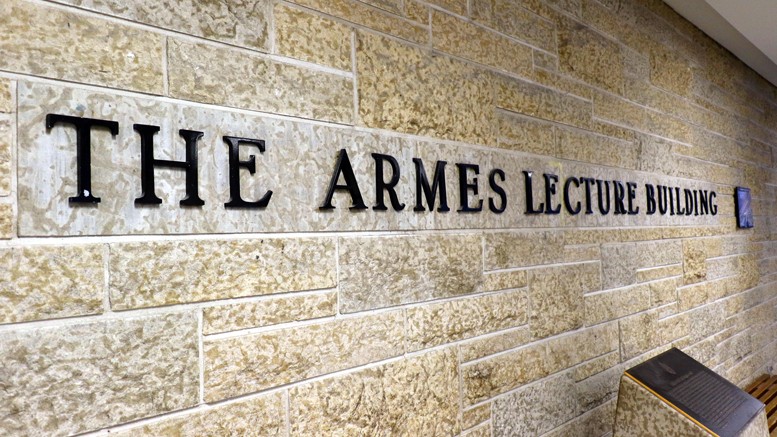The decision by the University of Manitoba Students’ Union (UMSU) to sanction the Science Students’ Association (SSA) was “extreme” and “excessive,” said SSA president Anthony Cao.
In an emergency motion in early December, UMSU voted to sanction the SSA due an alleged unsafe work environment and culture of fear on council. In an in camera discussion, council voted 26-1 through secret ballot to pass three sanctions.
The sanctions included the appointment of an independent chair to oversee future SSA meetings, a governance audit, and finally, the withholding of all fund disbursements if Cao refuses to participate in mediation to resolve the conflict.
The motion, moved by SSA member and UMSU representative Dara Hallock, notes multiple members of the association had brought forward complaints regarding SSA operations, specifically related to Cao’s behaviour. Further, the motion notes that complainants were “forced to retract their names from a supporting document out of fear of reprisal.”
Hallock was unavailable for comment by press time.
Cao said he was not aware of any issues within the SSA or the motion to UMSU council until he received an email from UMSU that explained all of the sanctions.
Cao added that nobody tried to contact him directly before seeking formal sanction through the UMSU council. He said that he has since co-operated fully.
“I can say that the stuff in SSA council was, I think, being blown a little bit out of proportion and it’s a little bit excessive for UMSU to threaten us by withholding our funding, because the entire science student body […] it’s their money and if UMSU doesn’t give us that money then it’s kind of messed up […] I feel like that was also really extreme,” Cao told the Manitoban.
“For other people to put the SSA’s money at risk, divert my attention to something else for things that are questionable that I don’t even really know the basis of it, I feel like that’s really sacrificing this year.”
Due to the confidentiality and privacy of in camera sessions, councillors from UMSU were not at liberty to share details or provide public comment on the specific problems that led to the formal motion to sanction the SSA.
“One of the representatives noted that because the situation dealt with a lot of very confidential, very sensitive, personal information that it would be in the best interest of everyone who was involved in this situation to keep things confidential and to not discuss it publicly,” said Rebecca Kunzman, UMSU’s vice-president advocacy.
Kunzman added that UMSU’s meetings and in camera sessions are governed by Robert’s Rules of Order, which is the standard guideline that many organizations use in order to have fair discussions and decision-making processes.
UMSU bylaws require that all in camera sessions be documented with complete and accurate minutes of all proceedings of council. However, the minutes are only accessible to council members upon request.
Kunzman told the Manitoban that part of the reason why the UMSU council chair decided to move the motion as an emergency motion was because of the complaint regarding an unsafe work environment.
“Typically, motions are required to be brought forward with sufficient notice from student council,” Kunzman said. “This was raised the day of the UMSU council meeting, so for those reasons, the chair felt it pertinent to include it as an emergency motion.”
Regarding the unsafe work environment and culture of fear described as motivating factors behind the motion, Cao said he has never degraded anyone.
“I’ve never insulted people, I’ve never yelled at them, raised my voice, I’ve never done anything physical,” he said. “If I were to do anything physical or something like that, this would be a matter for security services or police.”
When asked about the more than month-long break between meetings cited by the UMSU council chair as justification for allowing the emergency motion, Cao said the reason behind the complaint is that the SSA doesn’t meet during winter break and exam period.
Cao took office as president in May 2015. He said he understands that criticism is bound to happen in any leadership position, but that his main goal has always been to give back to the science students that voted for him.
Cao explained that he doesn’t have sole power on council and that everything passes through a vote. He also said that negative accusations are largely evidence that he is sincere and attempting to do the right thing for science students.
“I probably wouldn’t be accused of those things if I was lazy or not trying,” he said. “If I was trying to not take it seriously, these accusations wouldn’t be there.”
“So for people to perhaps complain and feel a certain way, I think that’s highly reactive and highly excessive […] I can only do so much essentially, even if I did have the intention of doing something malicious, I can only do so much even if I was like that,” he added.
With elections scheduled for March, Cao said he has noticed a pattern in student politics when it comes to negative allegations.
“I can’t speak for other people, I can only really say what I think […] It seems like the bad things come out, accusations come out, when it gets closer to whatever election,” he said. “That’s just something I’ve noticed, I don’t know if it has anything to do with this or not.”


